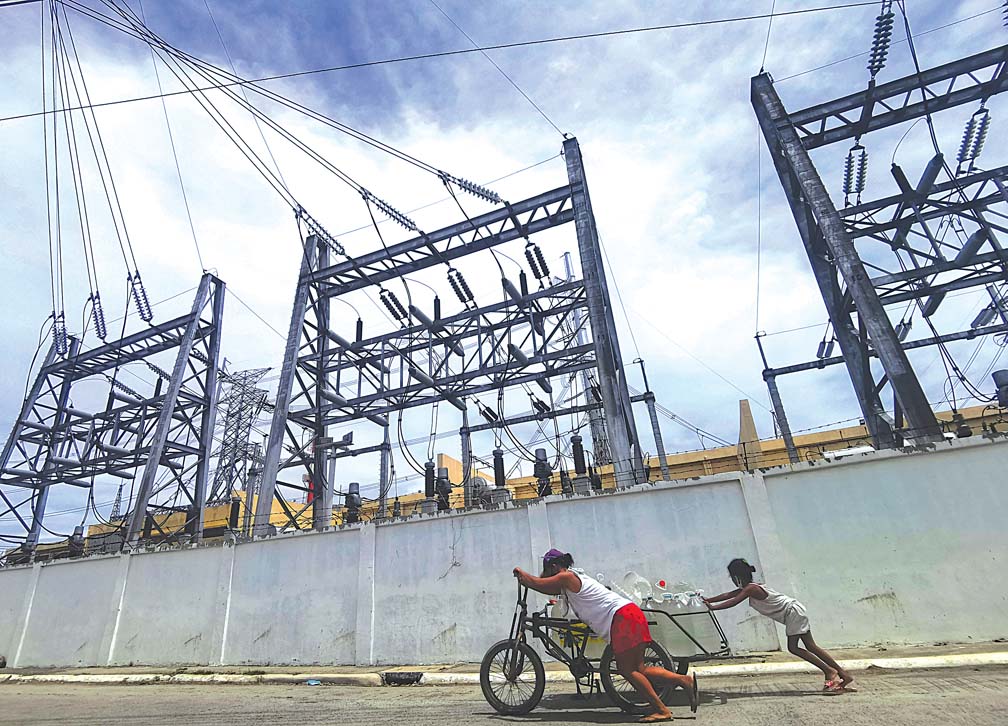NGCP: 4 Chinese board members not a threat
By Lenie Lectura – January 15, 2025
from Business Mirror

File photo shows NGCP Substation 1 (Photo by Nonie Reyes/BM)
China’s 40-percent stake in the National Grid Corp. of the Philippines (NGCP) does not mean that it has control over the transmission network in the Philippines, an official of the NGCP said on Wednesday.
“Is the chairman of the board more important? Is his vote heavier than the others? No. In fact, he just needs to be the presiding officer. So, on the board, even if the chairman is a foreigner, it’s still a numbers game, meaning when voting on the decision, the one with the most wins. And I just emphasize that there are six Filipino stockholders,” said NGCP spokesperson Atty. Cynthia Alabanza during a news briefing.
State Grid Corporation of China’s (SGCC) 40% stake in NGCP fully complies with the Constitution, which allows foreign ownership of up to 40% of the capital stock of a corporation operating a public utility. She pointed out that SGCC’s stake cannot and does not amount to control of the company because Filipinos own 60% of NGCP. Control over the company is vested in the Filipino shareholders, as envisioned by the Constitution.
The 60% is held by companies led by Henry Sy, Jr. and Robert Coyiuto Jr. The NGCP, which holds the 25-year concession contract and the 50-year franchise to operate the power transmission network, is comprised of Monte Oro Grid Resources Corp. led by Sy, Calaca High Power Corporation led by Coyiuto, and the SGCC as technical partner.
The NGCP board is chaired by Zhu Guangchao. The three other Chinese nationals in the board are Yao Yousheng, Wang Lijin, and Liu Xinhua. The remaining six board members are Filipino, including Sy, Coyiuto Jr., Anthony Almeda, Jose Pardo, Francis Chua, and Paul Sagayo Jr.
“The role of the chairman on the board of the NGCP is within the bounds of law because he is only the presiding officer,” Alabanza stressed.
The NGCP has once again caught the ire of most lawmakers who have raised concerns that the grid is vulnerable as a result of foreign participation in NGCP.
Alabanza, however, refuted this, saying all control centers, substations, and command centers are operated and manned by Filipinos.
She also stressed that these non-Filipino NGCP board members are not a threat to national security simply because they are “not the one sitting and dispatching,” referring to the grid operations inside the control room.
Besides, she said “the system is isolated.”
“The sitting dispatcher is all Filipino. I understand, I am also a Filipino, the WPS (West Philippine Sea) issue is also worrying, I can say that there is no such threat within the NGCP…In terms of being able to assert control over the transmission system of the Philippines under NGCP, there is none,” added Alabanza.
Territorial disputes between the Philippines and China have been in the spotlight for years.
Image credits: Nonie Reyes



